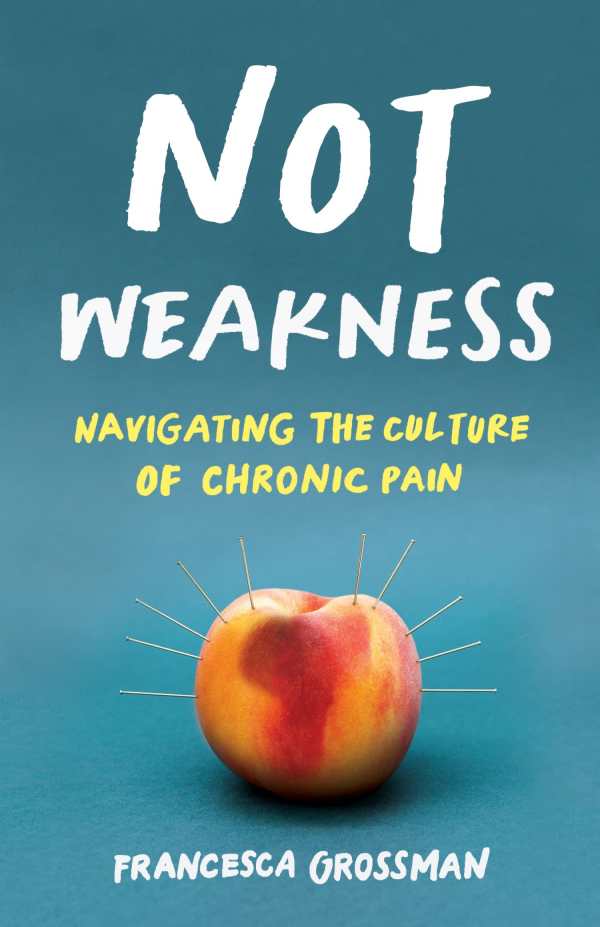Not Weakness
Navigating the Culture of Chronic Pain
With examples that cultivate empathy, Not Weakness is a searing, personalized indictment of how society responds to women’s chronic pain.
Francesca Grossman’s Not Weakness is a memoir about, and an exploration of, living with chronic pain as a woman.
Grossman has experienced chronic pain since she was a teenager. In an effort to understand more about the multiplicity of conditions that have plagued her, she gathered other women of varying ages and from different backgrounds who are living through the same situation: a pain that doesn’t ever let up in its entirety, no matter how many treatments or pills they try. Soon, troubling patterns began to emerge.
The book is broken into eleven chapters, each focused on an aspect of suffering from chronic pain—the beginnings of pain, how the afflicted are silenced, and shame among them. Each chapter draws on personal experiences and professional studies from various fields. The result is a thorough and informative overview of the topic.
Every chapter serves an important function: the very beginning, where Grossman explains how her chronic pain started, as well as that of the women she interviewed, goes a long way toward breaking down the comfortable idea that our bodies are within our control. Although there isn’t always a clear before and after, there is a pervading sense of loss—of physical abilities, yes, but also of possibilities. It becomes evident that such losses are furthered by the medical establishment’s deep-rooted issues when it comes to listening to and believing women about their own pain. Both medical studies and personal experiences give ample evidence of this, including an anecdote about how a woman could only get faster treatment when her husband intervened on her behalf.
A subsection of such medical dismissals deals with weight: no matter what symptoms these women had, more often than not they were told it was related to their weight and that all they had to do was lose a few pounds in order to heal. Sometimes, doctors wouldn’t even run tests before jumping straight to prescribing weight loss. On more than one occasion, they made inappropriate comments or jokes that were more humiliating than funny. This kind of behavior, as noted by both the individual anecdotes and the official studies, discouraged women from seeking medical help, thus aggravating their problems.
What becomes clear as the book progresses is the close link between chronic pain and mental illness, which means a double dose of stigma. In a horrifying anecdote, Grossman recalls ending up an impatient in psychiatric care, where a security guard waited until the nurse was gone to blame and berate her for her own depression, going so far as to accuse her of letting the devil in.
The book explores corresponding forms of shame as well, such as the shame felt when the patient feels like a burden to her loved ones. Whether the loved ones agree or not, the book declares that such feelings cast a painful, permanent shadow over many people who already live with relentless pain. Grossman expresses gratitude that her husband never wavered in making her feel loved and cared for, while also acknowledging the potential difficulties in a relationship between a person with chronic pain and one without. At such points and others, the book is an unflinching indictment of how pain is addressed. But its pages also include instances of compassion, solidarity, and love as a welcome reminder that people can be kind and empathetic as well.
Not Weakness is an enlightening, personalized study of the world of chronic pain.
Reviewed by
Carolina Ciucci
Disclosure: This article is not an endorsement, but a review. The publisher of this book provided free copies of the book and paid a small fee to have their book reviewed by a professional reviewer. Foreword Reviews and Clarion Reviews make no guarantee that the publisher will receive a positive review. Foreword Magazine, Inc. is disclosing this in accordance with the Federal Trade Commission’s 16 CFR, Part 255.

